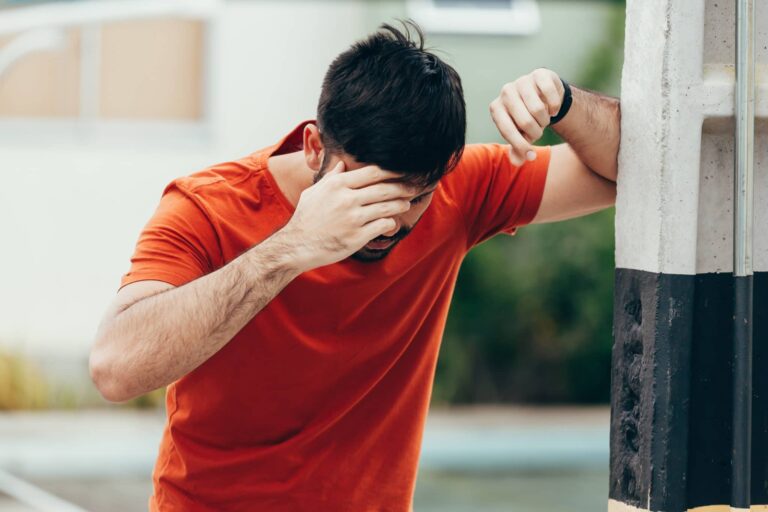There’s a lot we don’t know about COVID-19, and it seems like every day there is new information. One thing researchers have uncovered recently is that the virus is linked to neurological symptoms, including dizziness.
Symptoms of Coronavirus 
The CDC lists the following symptoms for coronavirus:
- Fever/chills
- Cough
- Shortness of breath/difficulty breathing
- Fatigue
- Muscle/body aches
- Headache
- Loss of taste/smell
- Sore throat
- Congestion/runny nose
- Nausea/vomiting
- Diarrhea
A recent review published in Annals of Neurology reveals that there are other possible symptoms related to the neurological system, which include:
- Difficulty concentrating
- Seizures
- Strokes
- Weakness
- Dizziness
The authors note that these symptoms may present before more common symptoms, like fever and respiratory problems.
What Is Dizziness?
Dizziness is a blanket term for a variety of sensations. For example, it can include vertigo, which is the sensation that you or the world around you is moving even when it is not, and lightheadedness, which means feeling faint. It can also describe feeling unsteady, as though you may fall over.
If I Feel Dizzy, Do I Have COVID?
Consider whether you’re prone to dizzy spells before you convince yourself you have COVID. If it’s not unusual for you to experience dizziness and you have no other symptoms, you likely don’t have coronavirus.
However, as Sheri Dewan, M.S., MD., neurosurgeon at Northwestern Medicine Central DuPage Hospital, explains, “If symptoms have dramatically changed in caliber—meaning frequency, length, occurring at different times of the day, trying normal treatments without resolve—then you should contact a physician, for imaging may be needed.”
How Do I Manage Dizziness?
Whether your dizziness is the result of coronavirus or dehydration, it is an unpleasant experience.
If you’re suddenly hit with a dizzy spell, the first thing you should do is sit or lie down to mitigate the risk of falling. It is helpful to keep your eyes closed until the feeling passes. When you’re ready to get up, move slowly in order to avoid disturbances in the inner ear.
Make sure to drink lots of fluids and eat a healthy snack, as lack of food and water are common reasons for dizzy spells. If your symptoms are ongoing and you’ve ruled out coronavirus through testing, schedule an appointment with an audiologist.
For more information or to schedule an appointment, call the experts at The Hearing & Balance Center.
